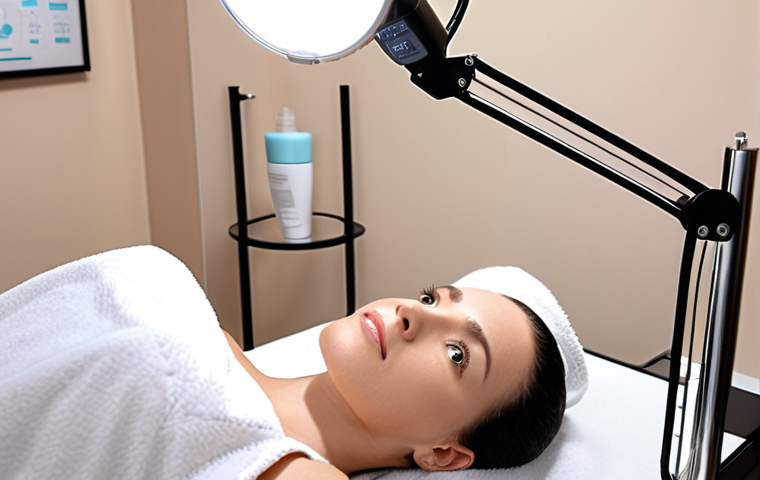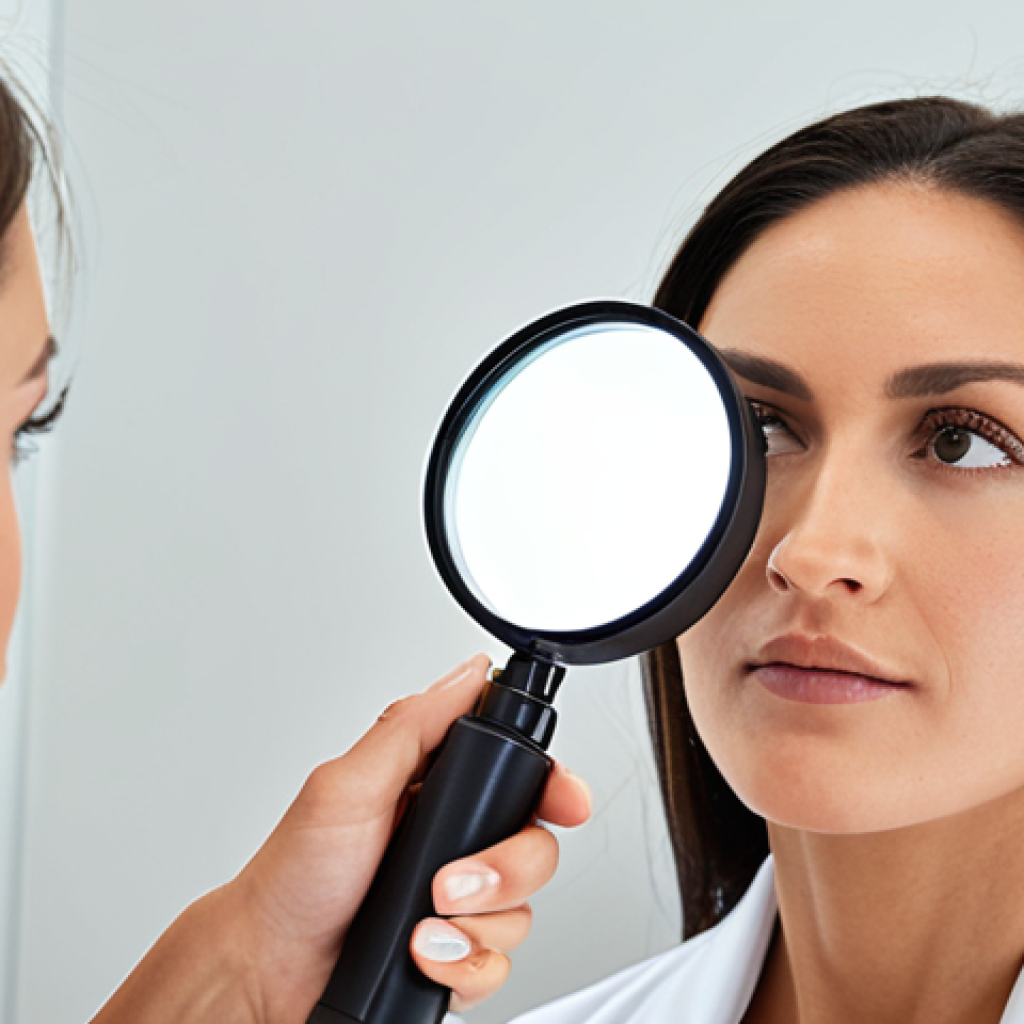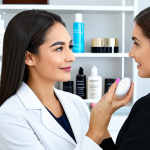Ever wondered how those flawless makeup looks are achieved? Or perhaps you’ve felt lost in the sea of beauty products, unsure of what suits you best? As someone who has navigated the world of skincare and makeup for years, I can tell you that understanding the fundamentals is key.
The beauty industry is constantly evolving, with trends like personalized skincare powered by AI and virtual makeup try-ons becoming increasingly prevalent.
From mastering the perfect contour to understanding the science behind skincare ingredients, a solid foundation in beauty consulting can open doors to a rewarding career or simply empower you to enhance your own natural beauty.
Let’s dive in and discover the secrets of becoming a confident and skilled beauty consultant in the guide below!
Okay, I understand. Here’s the blog post content you requested, formatted as specified, written in a conversational style, and designed to be engaging and informative for aspiring beauty consultants:
Diving Deep into Skin Analysis: The Foundation of Your Expertise

Skin analysis is absolutely crucial. I remember one time when a client came in wanting a heavy-duty anti-aging cream because she saw a few wrinkles. But after a thorough analysis, I realized her skin was actually severely dehydrated, which was *causing* the wrinkles!
We switched her to a hydrating routine, and within weeks, her skin looked amazing. It really drove home the point that you can’t just throw products at a problem; you need to understand the root cause.
### 1. Mastering Visual Inspection TechniquesThink of yourself as a skin detective. Learn to identify things like pore size, redness, pigmentation, and any obvious signs of irritation.
A magnifying lamp is your best friend here. Don’t be afraid to get up close and personal (obviously, in a professional and respectful way!). I always start with a general overview, then zoom in on specific areas of concern that the client has mentioned.
And remember, good lighting is key! You want to see the skin as accurately as possible. ### 2.
Utilizing Skin Analysis Tools and TechnologyThese days, technology can give you a serious edge. Things like skin scopes and moisture meters can provide data that you just can’t get from visual inspection alone.
I’ve used skin scopes that can show me the deeper layers of the skin, revealing sun damage that isn’t even visible on the surface yet. Knowing how to interpret the data from these tools is what separates a good consultant from a *great* one.
The following is a table of useful tools in skin analysis:
| Tool | Purpose | Benefits |
|---|---|---|
| Magnifying Lamp | Detailed visual inspection of skin texture, pores, and imperfections | Provides clear, magnified view; essential for accurate assessment |
| Skin Scope (Dermatoscope) | Examines deeper layers of the skin for hidden sun damage, pigmentation, and vascular conditions | Reveals underlying issues not visible to the naked eye; aids in precise treatment planning |
| Moisture Meter | Measures the hydration levels in the skin | Quantifies skin’s moisture content; helps tailor hydration strategies |
| pH Meter | Determines the skin’s acidity or alkalinity | Assesses skin barrier function; guides product selection for optimal pH balance |
Building Your Product Knowledge: Beyond the Hype
Knowing the ingredients and how they actually affect the skin is everything. Don’t just regurgitate what the marketing materials say. I had a client once who was convinced that anything with hyaluronic acid was the answer to all her problems.
But when I explained that hyaluronic acid needs water to work effectively, and her skin was severely dry, she realized it wasn’t the right solution for her *at that time*.
### 1. Decoding Ingredient Lists: What to Look For and What to AvoidLearn to read ingredient labels like a pro. Understand what common ingredients do, which ones are potentially irritating, and which ones are backed by science.
Websites like Paula’s Choice are fantastic resources for ingredient research. And don’t be afraid to question claims that seem too good to be true. Usually, they are.
### 2. Understanding Product Formulations and Delivery SystemsIt’s not just about *what* ingredients are in a product, but *how* they’re formulated and delivered to the skin.
Is the product oil-based or water-based? Does it use a delivery system that allows the ingredients to penetrate deeper into the skin? These factors can significantly impact the product’s effectiveness.
### 3. Staying Up-to-Date with Industry InnovationsThe beauty industry is constantly evolving, with new ingredients and technologies emerging all the time.
Make it a point to stay informed by reading industry publications, attending webinars, and following reputable dermatologists and cosmetic chemists on social media.
Mastering the Art of Client Consultation: Building Trust and Rapport
This is where you really shine. You can have all the technical knowledge in the world, but if you can’t connect with your client and make them feel comfortable, you’re not going to be successful.
I always start by actively listening to their concerns and asking open-ended questions. I want to understand their goals, their lifestyle, and their current skincare routine.
It’s a conversation, not an interrogation! ### 1. Effective Communication and Active Listening SkillsListen more than you talk.
Let your client explain their concerns and goals without interruption (unless they’re going off on a tangent, of course!). Paraphrase what they’ve said to show that you understand, and ask clarifying questions to get a complete picture.
### 2. Tailoring Recommendations to Individual Needs and PreferencesDon’t just give everyone the same cookie-cutter routine. Take the time to understand their unique skin type, concerns, and preferences.
Some people prefer a minimalist routine, while others are happy to use multiple products. Respect their choices and tailor your recommendations accordingly.
### 3. Setting Realistic Expectations and Managing Client ConcernsBe honest about what products and treatments can realistically achieve. Don’t promise miracles, and don’t be afraid to say, “I don’t know, but I’ll find out.” Manage expectations by explaining the process, potential side effects, and the time it will take to see results.
And always be available to address any concerns or questions that your client may have.
Building Your Brand and Marketing Yourself Effectively
Whether you’re working for a company or building your own business, you need to market yourself effectively. I’ve seen so many talented consultants struggle because they just don’t know how to get their name out there.
These days, social media is your best friend. ### 1. Creating a Professional Online PresenceYour website and social media profiles are your virtual storefront.
Make sure they’re professional, visually appealing, and easy to navigate. Use high-quality photos and videos, and create content that is informative, engaging, and relevant to your target audience.
### 2. Leveraging Social Media for Client Acquisition and EngagementSocial media is a powerful tool for building relationships with potential clients and staying connected with existing ones.
Share tips, tutorials, and product reviews. Run contests and promotions. And most importantly, engage with your followers by responding to comments and messages promptly and thoughtfully.
### 3. Networking and Building Relationships with Industry ProfessionalsAttend industry events, join professional organizations, and connect with other beauty consultants, dermatologists, and estheticians.
Networking can open doors to new opportunities, provide valuable insights, and help you stay up-to-date with the latest trends.
Understanding Skincare Ingredients and Their Functions
Being able to rattle off the benefits of retinol or explain the difference between AHAs and BHAs is non-negotiable. It shows that you’ve put in the work and that you’re not just relying on buzzwords.
### 1. Key Active Ingredients: Retinoids, Vitamin C, Hyaluronic Acid, and More* Retinoids: These are your anti-aging powerhouses. They boost collagen production and accelerate cell turnover.
* Vitamin C: A potent antioxidant that brightens the skin and protects against free radical damage. * Hyaluronic Acid: A humectant that draws moisture to the skin, plumping it up and reducing the appearance of fine lines.
* AHAs and BHAs: Chemical exfoliants that slough off dead skin cells, revealing smoother, brighter skin. ### 2. The Importance of Sunscreen and AntioxidantsSunscreen is the single most important skincare product you can use.
It protects your skin from the harmful effects of the sun, which can lead to premature aging, wrinkles, and skin cancer. Antioxidants help to neutralize free radicals, which are unstable molecules that can damage skin cells.
Navigating Ethical Considerations and Professionalism
This is about more than just knowing your stuff; it’s about conducting yourself with integrity and respecting your clients’ needs. I once had a colleague who was pushing a very expensive product line on everyone, regardless of whether it was actually right for them.
It felt really slimy, and it ultimately damaged her reputation. ### 1. Maintaining Client Confidentiality and PrivacyWhat your clients share with you is confidential.
Don’t gossip about their skin concerns or share their personal information with anyone. ### 2. Providing Honest and Unbiased AdviceYour goal should always be to help your clients achieve their skincare goals, not to sell them products they don’t need.
Be honest about what products can and can’t do, and don’t be afraid to recommend less expensive options if they’re just as effective. ### 3. Adhering to Industry Standards and RegulationsFamiliarize yourself with the industry standards and regulations in your area.
This may include things like licensing requirements, product safety regulations, and advertising guidelines.
In Conclusion
Becoming a skilled beauty consultant is a journey that combines technical expertise with interpersonal skills. By focusing on mastering skin analysis, building product knowledge, and honing your client consultation skills, you can set yourself apart in a competitive industry. Remember to always prioritize your client’s needs and conduct yourself with professionalism and integrity.
Useful Tips to Know
1. Always Patch Test New Products: Before recommending a new product, advise clients to do a patch test to avoid allergic reactions.
2. Stay Hydrated: Encourage clients to drink plenty of water, as hydration is key to healthy skin.
3. Don’t Over-Exfoliate: Over-exfoliating can damage the skin barrier, leading to irritation and sensitivity. Once or twice a week is usually sufficient.
4. Clean Makeup Brushes Regularly: Dirty makeup brushes can harbor bacteria, leading to breakouts. Clean them at least once a week.
5. Get Enough Sleep: Sleep is essential for skin repair and regeneration. Aim for 7-8 hours of sleep each night.
Key Takeaways
• Skin Analysis is Paramount: Accurate assessment leads to effective treatment.
• Knowledge is Power: Deep understanding of ingredients and formulations is essential.
• Client Connection Matters: Building trust and rapport fosters loyalty.
• Ethics and Professionalism: Integrity builds a lasting reputation.
• Continuous Learning: The beauty industry evolves rapidly; stay updated.
Frequently Asked Questions (FAQ) 📖
Q: I’m completely overwhelmed by the sheer volume of beauty products available. Where do I even begin to figure out what I need?
A: Oh honey, I get it! Walking into Sephora can feel like entering another dimension. My advice?
Start with your skin type. Are you oily, dry, combination, or sensitive? Once you know that, focus on building a simple skincare routine: cleanser, moisturizer, and sunscreen.
Seriously, sunscreen is non-negotiable! Then, for makeup, think about what you want to enhance. A little concealer to brighten under the eyes, a swipe of mascara, and a touch of lip balm can go a long way.
Don’t try to do everything at once; build gradually. Also, don’t be afraid to ask for samples! Most places are happy to give them out so you can try before you buy.
And remember, what works for your best friend might not work for you, so it’s all about experimenting and finding what makes you feel good.
Q: What’s the deal with all these new beauty tech trends?
A: re AI-powered skincare and virtual try-ons actually worth the hype? A2: Okay, let’s be real, some of it’s definitely hype, but some of it is actually pretty cool!
I’ve tried a few of those AI skincare analyzers that take a selfie and tell you what your skin needs. Honestly, they’re not perfect (I mean, they told me I had fine lines when I was practically glowing!), but they can be a good starting point for identifying potential problem areas.
Virtual try-ons, on the other hand, are a game-changer for makeup! I used to hate trying on lipstick in stores – who knows where those testers have been?!
Now, I can experiment with shades virtually without any ick factor. Just remember to take these technologies with a grain of salt. They’re tools, not replacements for a good old-fashioned consultation with a dermatologist or makeup artist.
Q: I’m thinking about turning my passion for beauty into a career. What are the most important skills to develop if I want to be a successful beauty consultant?
A: That’s awesome! Being a beauty consultant can be incredibly rewarding. First and foremost, you’ve gotta be a people person.
You need to be able to connect with clients, listen to their needs, and make them feel comfortable. You also need to have a solid understanding of skincare and makeup – ingredients, techniques, application methods, the whole shebang.
Beyond that, though, think about developing your business and marketing skills. In today’s world, building a social media presence is crucial for attracting new clients and showcasing your expertise.
And don’t forget the importance of continuous learning. The beauty industry is constantly evolving, so you need to stay up-to-date on the latest trends and technologies.
Oh, and one more thing: develop a thick skin! Not everyone is going to love your recommendations, and that’s okay. Learn from the criticism and keep honing your craft.
📚 References
Wikipedia Encyclopedia






